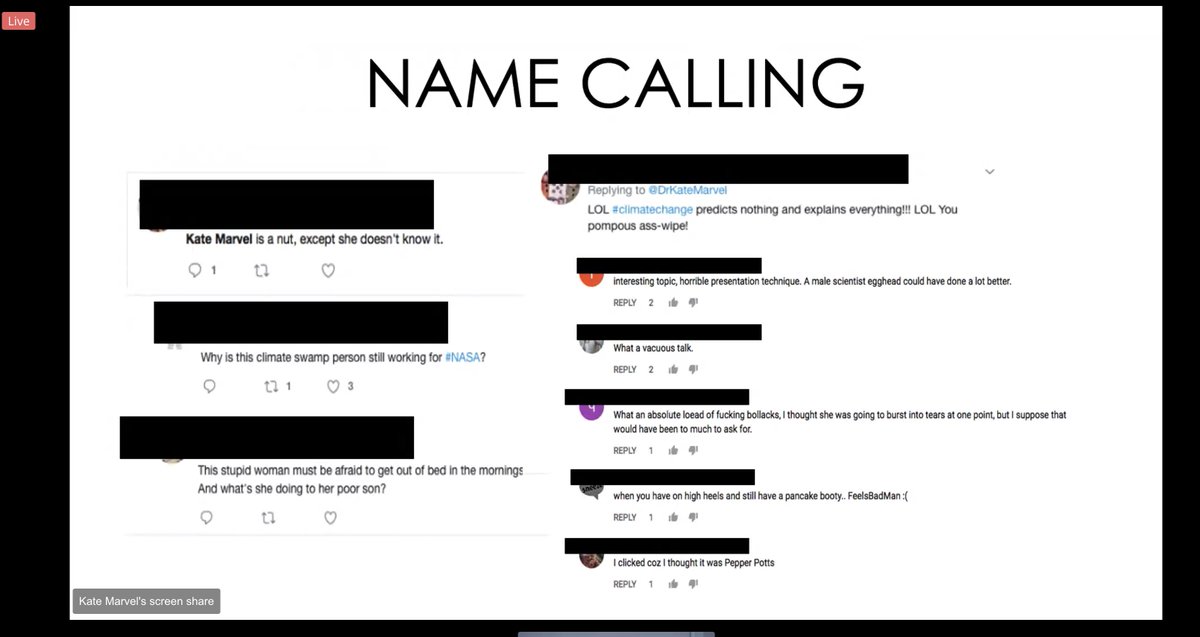
What does the new #IPCC #ClimateReport say in plain language?
I'll try to highlight what the Summary for Policymakers means with zero jargon in this THREAD. ipcc.ch/report/ar6/wg2/
If I slip or something is still unclear, let me know & I'll try to explain better!
Here goes 1/n
I'll try to highlight what the Summary for Policymakers means with zero jargon in this THREAD. ipcc.ch/report/ar6/wg2/
If I slip or something is still unclear, let me know & I'll try to explain better!
Here goes 1/n
Scientists are certain: #ClimateChange threatens people and life on planet Earth. If humans fail to rapidly reduce emissions "we will miss a brief and rapidly closing window to secure a liveable and sustainable future for all." #IPCC #ClimateReport D.5 2/n
#ClimateChange has already harmed people and nature around the world. The most hurt are poor people, and places that feel climate impacts strongly because of their physical settings, like mountains, deserts, coasts, small islands, polar regions.
#IPCC #ClimateReport B.1,B.2 3/n
#IPCC #ClimateReport B.1,B.2 3/n
Almost half of people on Earth, up to 3.6 billion, live in places where they are at high risk of harm from #ClimateChange. Unfair social processes like colonialism + weak and unfair government policies and political processes worsen climate harms.
#IPCC #ClimateReport B.2 4/n
#IPCC #ClimateReport B.2 4/n
It will warm more between now and 2040, and that is very bad. If the world limits warming to 1.5°C [by decisively shutting down #fossilfuels], life will be much better for people and nature than under more warming, but still worse than today. :(
#IPCC #ClimateReport B.3 5/n
#IPCC #ClimateReport B.3 5/n
How warm it gets in 2040 and beyond depends on how fast we cut climate pollution now. The faster we cut emissions, the more feasible it is for people and nature to adjust and be okay. Shit really hits the fan at 2°C and beyond. #IPCC #ClimateReport B.4 6/n
Climate risks like drought, wildfire, and heatwaves worsen each other. Climate solutions that work against nature rather than with it (like thoughtless tree planting), or attempt to fight the fucking sun, risk making things worse. #IPCC #ClimateReport B.5 7/n
If we warm over 1.5°C, it will cause severe problems that cannot be undone, even if it cools later. Cooling after 1.5°C will be harder because nature will have lost a lot of carbon from burned and dying forests, drying wetlands, & thawing permafrost. #IPCC #ClimateReport B.6 8/n
Climate adaptation is the process where humans or nature adjust to #climatechange to minimise harm. So far, people are doing a bad job at climate adaptation. Current efforts are unfair, disorganised, minor, short-sighted, and not put into practice. #IPCC #ClimateReport C.1 9/n
There are effective options to adapt to climate change that can be put into practice. They requires a lot more money than the pittance currently invested in climate adaptation. Effective adaptation should right social wrongs and multi-solve. #IPCC #ClimateReport C.2 10/n
It is not possible to adapt to every harm caused by #climatechange. "Soft" limits mean options exist, but aren't currently used; they can be overcome w/ more money & better policy. "Hard" limits mean no options exist to avoid harm (warm water corals) #IPCC #ClimateReport C.3 11/n
Efforts to adapt to climate change are often making the problem worse. Real solutions need to be long-term, address multiple risks at the same time, include affected groups especially local and Indigenous people, and work with not against nature #IPCC #ClimateReport C.4 12/n
Here’s multisolving thread @bethsawin :)
Governments need to pay for climate adaptation; this helps unlock private finance. Must spend now to get benefits we'll see >2030. Climate education & litigation, + social movements, promote climate action. Fair policy must include those now left out #IPCC #ClimateReport C.5 13/n
Our current path risks locking in a degraded, poor, unfair, dangerous world. This is more likely the hotter it gets. We must choose justice & inclusion, value diverse kinds of knowledge, and take care of nature if we want a healthy, thriving world. #IPCC #ClimateReport D.1 14/n
To limit warming & adapt to 1.5°C, governments, businesses, individuals + organisations must work together across space & time, prioritize fairness, resolve value conflicts, respect rights, include those who've been left out, respect local conditions
#IPCC #ClimateReport D.2 15/n
#IPCC #ClimateReport D.2 15/n
People are moving to growing cities. Thinking of cities as just buildings & roads will lock in harm. Cities should include residents in green planning. Rich people should pay to help poor people adapt to climate change, especially in slums.
#IPCC #ClimateReport D.3 16/n
#IPCC #ClimateReport D.3 16/n
People need nature to have jobs and to survive. People need to protect 30-50% of the Earth, especially places where nature is healthy now. Nature can't stay healthy above 1.5°C. Don't plant trees where they don't like to grow. #IPCC #ClimateReport D.4 17/n
If humans don't rapidly cut climate pollution from now until 2030, we will be locked into misery. A good world is very tough to have over 1.5°C warming, impossible over 2°C. We need to work together, educate, share info & money, do & be our best. #IPCC #ClimateReport D.5 18/n
Thanks for reading my summary of #IPCC #IPCCReport #ClimateReport (TLDR: it's bad). 👆
If you're ready to take high-impact, evidence-based #ClimateAction, from your own life to changing systems of money, power, and policy, please join us at wecanfixit.substack.com. We need YOU 🙏
If you're ready to take high-impact, evidence-based #ClimateAction, from your own life to changing systems of money, power, and policy, please join us at wecanfixit.substack.com. We need YOU 🙏
@threadreaderapp please unroll
• • •
Missing some Tweet in this thread? You can try to
force a refresh







